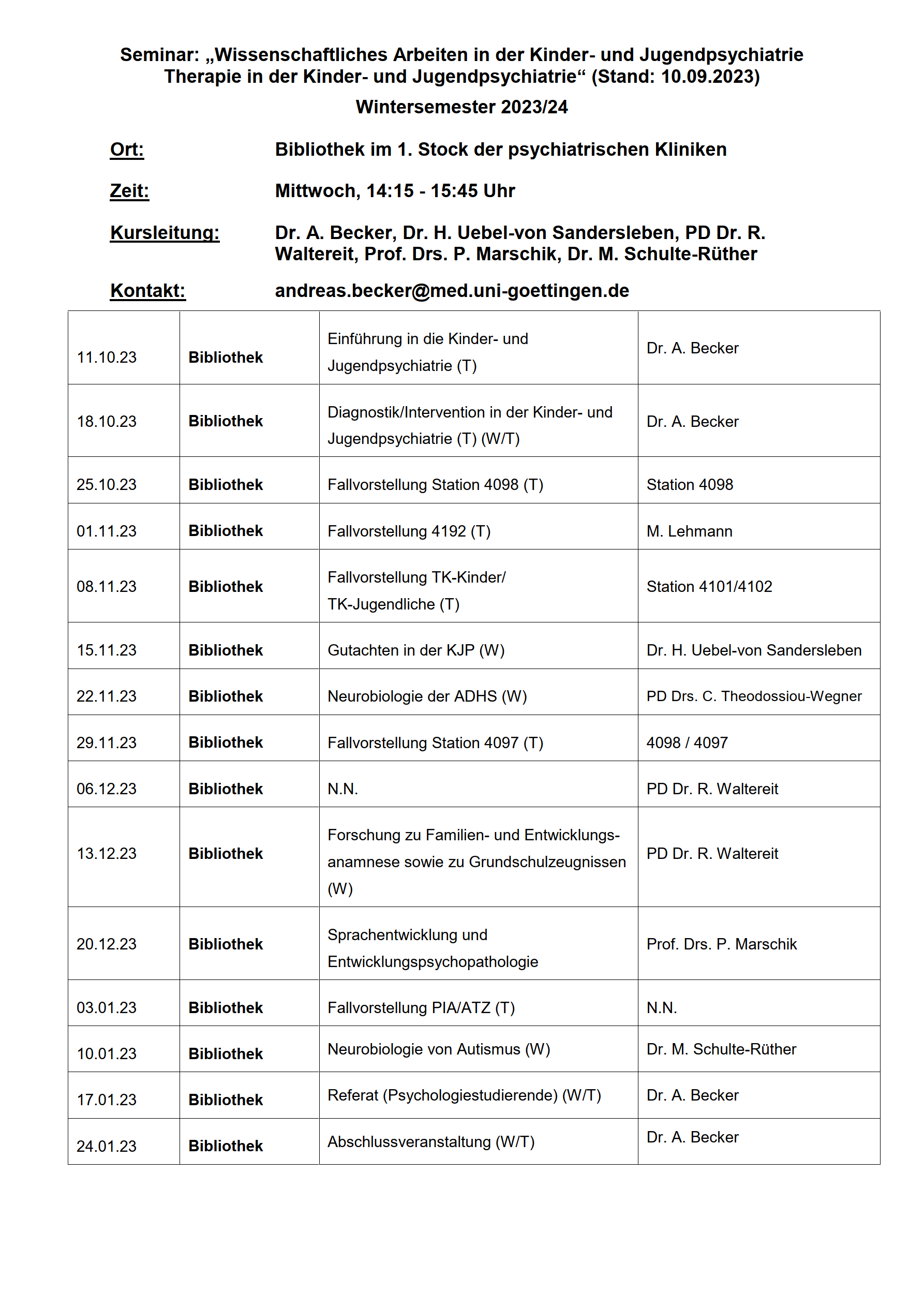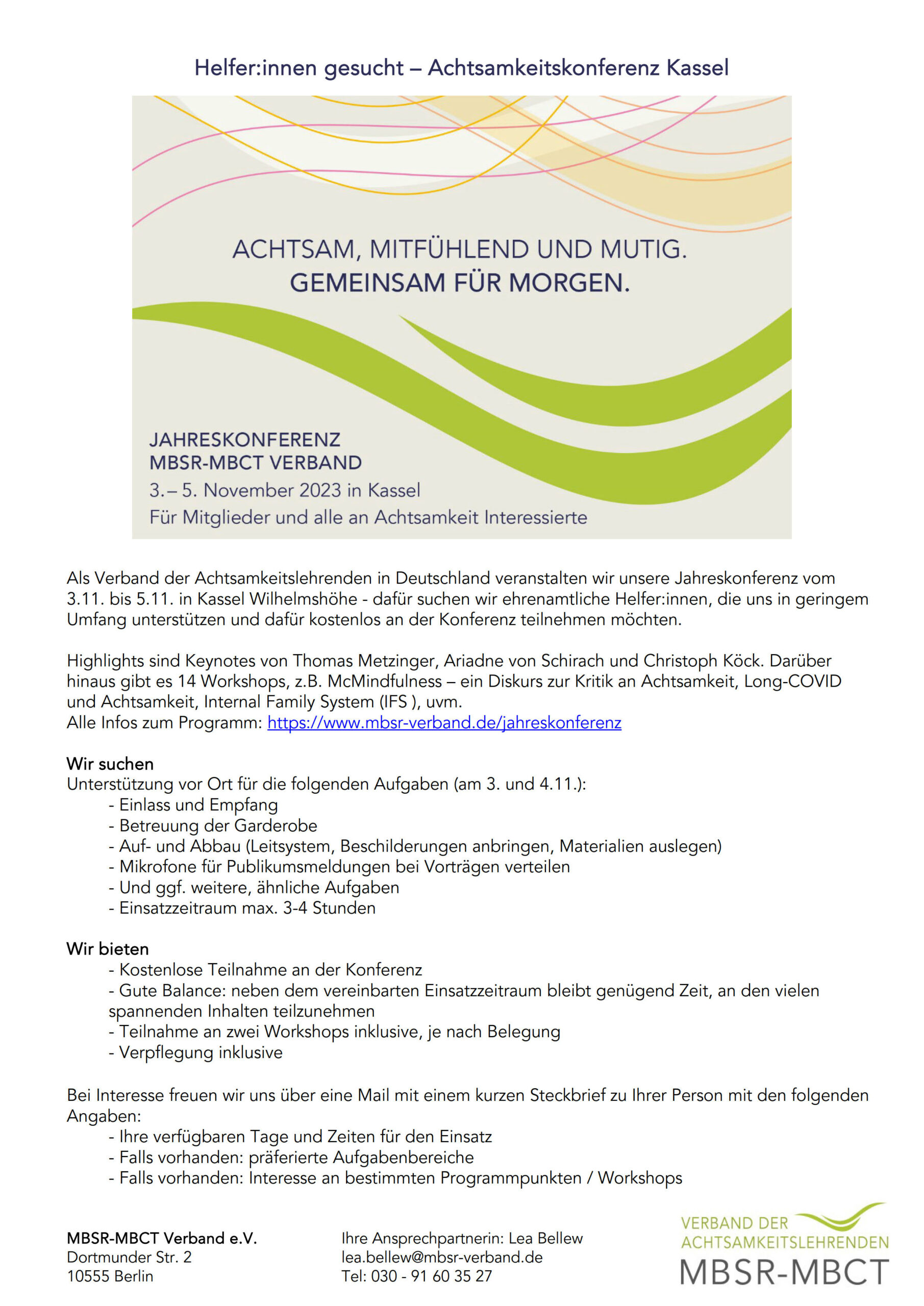
Tag: 11. September 2023
Praktikant*in gesucht
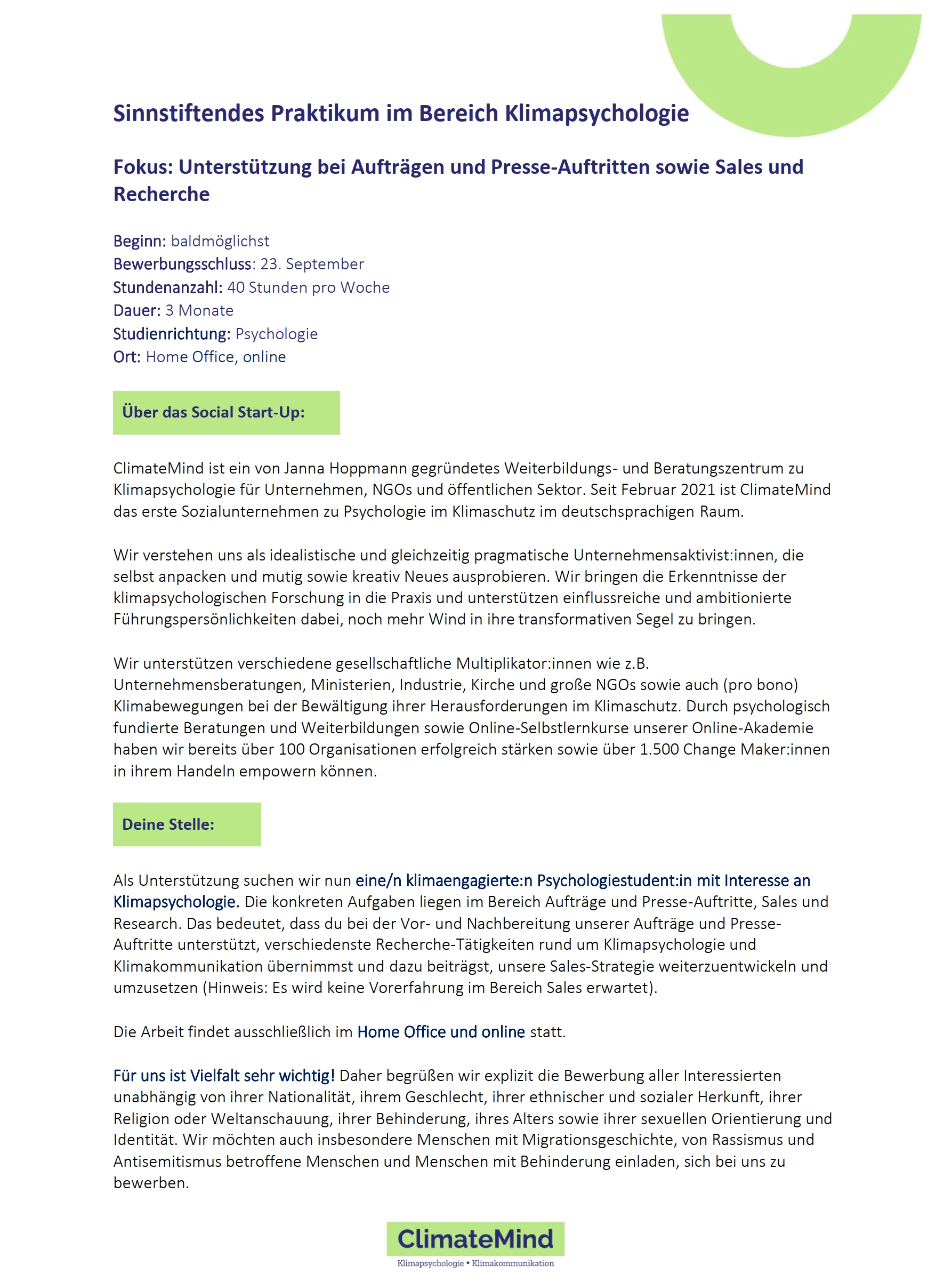
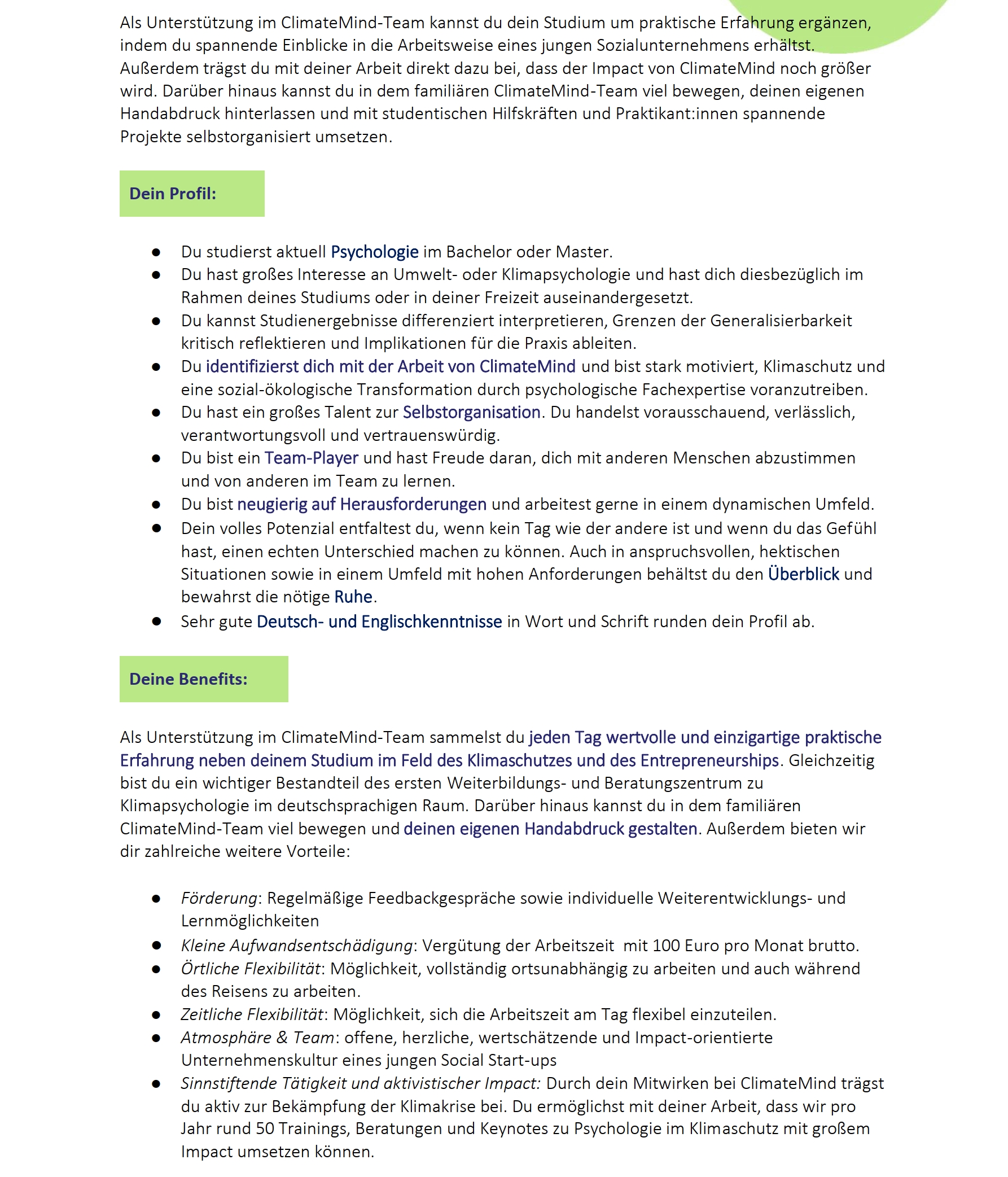
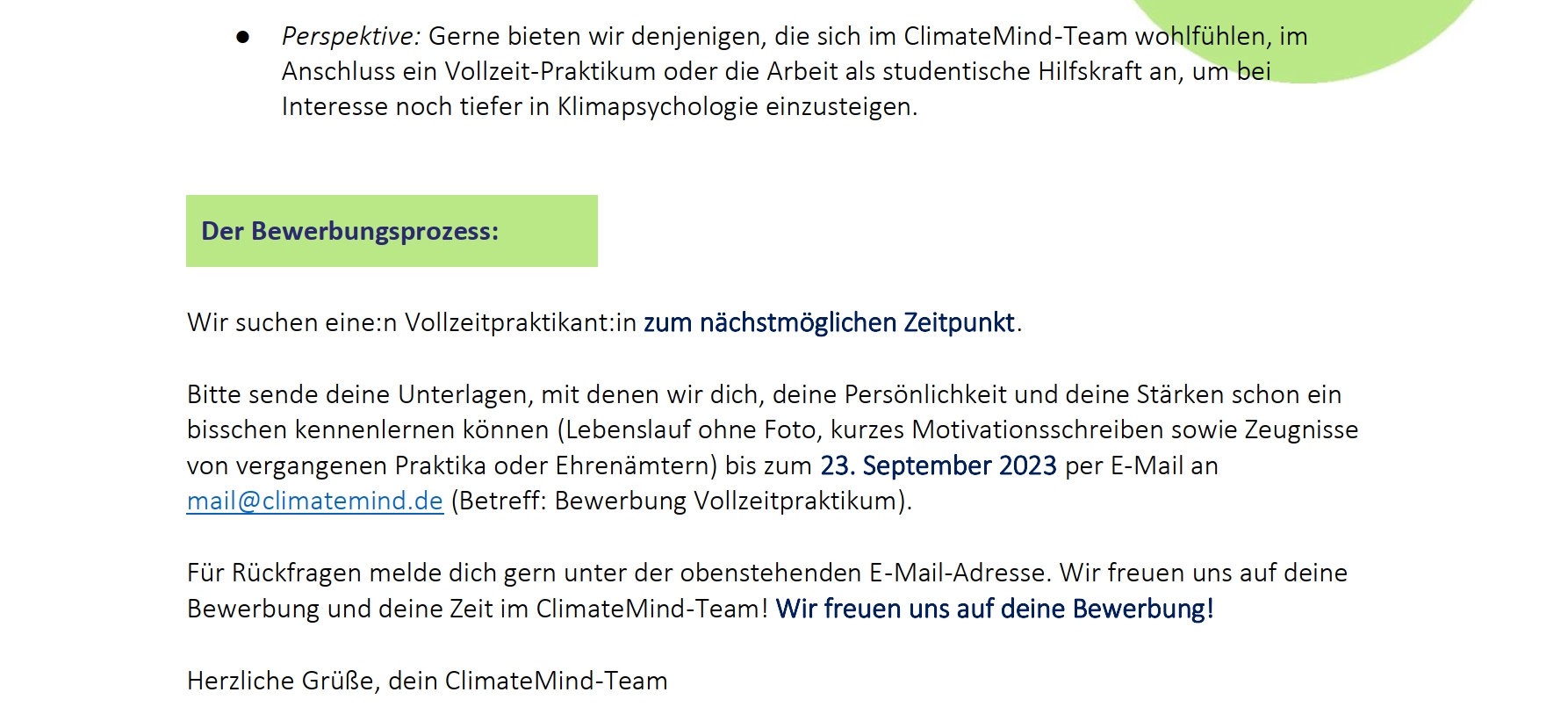
Studienteilnehmer*innen gesucht (keine Pb-Stunden)
Eye-Tracking Experiment
Wir suchen noch Teilnehmende!!!
Mit unserem Experiment wollen wir mehr über die Augenbewegungen bei Aufmerksamkeitsaufgaben herausfinden. Die Studie findet in zwei Sitzungen statt, die an unterschiedlichen Tagen innerhalb von einer Woche liegen sollen. Die Sitzungen finden hierbei im Deutschen Primaten Zentrum (DPZ) statt und eine Sitzung dauert ca. 1 Stunde. Am Ende der zweiten Sitzung wird eine Entlohnung von 8,- € ausgezahlt.
Während des Experiments sollst du ein Object auf einem Computer Bildschirm beobachten und immer nur dann einen Knopf drücken, wenn das Object seine Farbe verändert. Während des Experiments wird deine Augenbewegung mithilfe eines Eye-Treckers aufgezeichnet.
Für das Experiment ist es wichtig, dass du eine normale oder korrigierte Sehkraft (Brille, Kontaktlinsen) besitzt. Außerdem sollst du an keinem anderen Experiment teilgenommen haben, das die Augenbewegung bei Aufmerksamkeitsaufgaben untersucht.
Bei Interesse sende einfach eine Email an MHohmann@dpz.de
Einladung zum Kolloquium
Dear all,
Prof. Dr. Stephen Butterfill (University of Warwick) will give a talk at CogSci Colloquium on Tuesday, Sept. 12th , at 2 PM (CET).
Title: Inferential Isolation Is a Barrier to Understanding Cognitive Development
Abstract: Inferential Isolation is a basic principle of cognitive architecture, or so much evidence concerning both physical and social cognition indicates. Fast, relatively automatic processes implicitly arrive at conclusions about the movements and causal interactions of objects, and about the thoughts, feelings and actions of agents. But these conclusions are neither informed by culturally acquired knowledge nor reflected in verbal judgements. This inferential isolation is a barrier to understanding cognitive development. Much research indicates that infants, even in the first year of life, already benefit from those fast processes, which are sometimes called ‘systems of core knowledge’. The problem is to understand how core knowledge systems enable humans to learn about the physical and social world. One leading view is that the outputs of core knowledge systems ‘give rise to the concepts and beliefs that populate our thoughts’ (Spelke, 2022, p. 199). But this is incompatible with the evidence for inferential isolation. Indeed, the influence of core knowledge systems seems remarkably limited. This talk introduces some alternative ideas about how core knowledge may contribute to later developing forms of understanding. The main ideas are that we should embrace limits on core knowledge systems; and that we can overcome the barrier posed by inferential isolation by taking inspiration from discoveries from comparative and cognitive psychology, which provide a potentially rich source of novel developmental predictions.
Venue: Waldweg 26, Room 2.111
Please contact me until Thursday, Sept.7th , if you would like to meet with Stephen before or after his talk on Tuesday.
Thank you very much.
Saba
Saba Amirhaftehran, PhD student
Department of Cognitive Developmental Psychology
[Dieser Beitrag wurde zuerst an 04.09.23 veröffentlicht.]
Angebot freier Wahlbereich
Am Mittwoch, den 11.10.2023 startet der Wahlpflichtkurs: „Wissenschaftliches Arbeiten und Therapie in der Kinder- und Jugendpsychiatrie“ an dem gerne auch Psychologiestudierende teilnehmen dürfen.
Inhaltliche Planung des Seminars: Es werden 4 C vergeben. Dafür ist das Seminar mit 2 SWS konzipiert. Es muss eine Hausarbeit im Umfang von ca. 12 – 14 Seiten erstellt werden. Ferner ist ein Referat (20 min + 10 min Diskussion) zu halten.
Interessierte Studierende senden bitte Dr. Anreas Becker (andreas.becker@med.uni-goettingen.de) ihre Email-Adresse, damit Sie auf die Kursliste kommen können.
